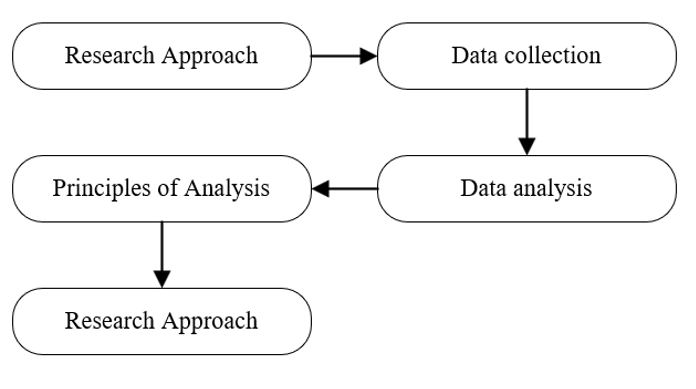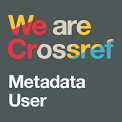Transformation of the Education Curriculum in Indonesia during the Dutch East Indies Rule: A Historical and Conceptual Review
DOI:
https://doi.org/10.51574/ijrer.v4i3.3249Keywords:
Colonial legacy, National education system, Curriculum reform, Educational inequalityAbstract
This study investigates the enduring impact of colonial legacies on Indonesia's national education system. The main objective is to analyze how structures, language policies, and bureaucratic frameworks inherited from the Dutch colonial era continue to shape educational access, quality, and equity today. Using a qualitative research approach, the study reviews secondary data, including academic articles and policy documents, combined with thematic analysis to identify key patterns and influences. The findings reveal that the dual-track curriculum system, separating academic and vocational education, perpetuates social segmentation, particularly disadvantaging students from lower socioeconomic backgrounds. Furthermore, the colonial use of Dutch as the primary language of instruction has created a longstanding preference for foreign languages, such as English, in formal education, which exacerbates learning inequalities between urban and rural areas. The study also highlights how the rigid, hierarchical educational bureaucracy inherited from the colonial period limits innovation and local adaptation in schools. Overall, the research concludes that addressing these challenges requires more than superficial curriculum revisions; it calls for deep systemic reforms that prioritize inclusivity, local relevance, and greater flexibility in educational management. By transforming these inherited structures, Indonesia can move toward a more equitable and high-quality national education system that better serves its diverse population.
References
Abdullah, A. F. A., Iskandar, M., & Rahman, M. H. (2024). Kontribusi Nahdlatul Ulama terhadap Eksistensi Pendidikan di Indonesia 1929-1973. NAHNU: Journal of Nahdlatul Ulama and Contemporary Islamic Studies, 2(1), 281–300. https://ojs.nupalengaan.or.id/NAHNU/article/view/37
Amelia, T. F., & Hudaidah, H. (2021). Pembaharuan Pendidikan Berdasarkan Pemikiran KH Ahmad Dahlan. Edukatif: Jurnal Ilmu Pendidikan, 3(2), 472–479.
Anderson, R. C., Katz-Buonincontro, J., Bousselot, T., Mattson, D., Beard, N., Land, J., & Livie, M. (2022). How am I a creative teacher? Beliefs, values, and affect for integrating creativity in the classroom. Teaching and Teacher Education, 110, 103583. https://doi.org/10.1016/j.tate.2021.103583
Baharuddin, & Burhan. (2025). Urban and rural teacher perspectives on Indonesian educational reform: challenges and policy implications. Cogent Education, 12(1), 2497142. https://doi.org/10.1080/2331186X.2025.2497142
Dimmock, C., Tan, C. Y., Nguyen, D., Tran, T. A., & Dinh, T. T. (2021). Implementing education system reform: Local adaptation in school reform of teaching and learning. International Journal of Educational Development, 80, 102302. https://doi.org/10.1016/j.ijedudev.2020.102302
Ferary, D. (2023). A Philosophical Perspective on the Purpose of Education in Indonesia. In Comparative and Decolonial Studies in Philosophy of Education (pp. 51-71). Singapore: Springer Nature Singapore. https://doi.org/10.1007/978-981-99-0139-5_4
Florian, L. (2022). Preparing teachers for inclusive education. In Encyclopedia of teacher education (pp. 1374-1379). Springer, Singapore. https://doi.org/10.1007/978-981-16-8679-5_39
Hall, D., Grimaldi, E., Gunter, H. M., Møller, J., Serpieri, R., & Skedsmo, G. (2015). Educational reform and modernisation in Europe: The role of national contexts in mediating the new public management. European Educational Research Journal, 14(6), 487-507. https://doi.org/10.1177/1474904115615357
Hidayat, M. T., Suryadi, S., Latifannisa, N., Sari, S. N., & Rino, R. (2025). Evolution of The Education Curriculum in Indonesia. Journal of Innovation in Educational and Cultural Research, 6(2), 381-395. https://doi.org/10.46843/jiecr.v6i2.1312
Idin, A., Nurlaela, N., & Marwan, I. (2024). Disparitas Kualitas Guru dalam Pendidikan. Cendekia: Jurnal Pendidikan Dan Pemberdayaan Masyarakat, 2(3), 193–201.
Jailani, M. S., & Isma, A. (2024). Perubahan Sosial dan Pendidikan. Dirasah: Jurnal Studi Ilmu Dan Manajemen Pendidikan Islam, 7(2), 692–701. https://doi.org/10.58401/dirasah.v7i2.1299
Khanifah, A., & Mudzakkir, M. (2024). Hidden Curriculum Buku Pelajaran Sosiologi: Transfer Ideologi Antar Generasi. Jurnal Obsesi: Jurnal Pendidikan Anak Usia Dini, 8(6), 1887–1906.
Komariah, S. (2022). Peranan Ki Hajar Dewantara dalam Pembaharuan Pendidikan di Indonesia. IAIN Ponorogo.
Magnússon, G., Göransson, K., & Lindqvist, G. (2019). Contextualizing inclusive education in educational policy: the case of Sweden. Nordic journal of studies in educational policy, 5(2), 67-77. https://doi.org/10.1080/20020317.2019.1586512
Manurung, L. (2019). Sejarah Kurikulum di Indonesia. Jurnal Ilmiah Wahana Pendidikan, 5(2), 88–95. http://www.jurnal.peneliti.net/index.php/JIWP/article/view/98
Mardizal, J., & Ramatni, A. (2024). Sosiologi aPendidikan. Jonni Mardizal.
Nurazizah, E., Astria, G., & Faelasup, F. (2025). Sejarah Perkembangan Pendidikan Islam di Nusantara: Studi Literatur Tentang Pondok Pesantren dan Madrasah. Jurnal Miftahul Ilmi: Jurnal Pendidikan Agama Islam, 2(3), 117–131. https://doi.org/10.59841/miftahulilmi.v2i3.161
Nurrohman, T. (2023). Pengembangan kurikulum belajar dalam mengatasi Krisis kesenjangan social pada akses kualitas Pendidikan. Jurnal Penjaminan Mutu, 192–198.
Prayogi, R., Komalasari, K., & Nurgiansah, T. H. (2023). Kajian Perbandingan Civic Education di Eropa dan Indonesia. Jurnal Kewarganegaraan, 7(2), 2342–2355. https://doi.org/10.31316/jk.v7i2.5706
Purba, A., & Saragih, A. (2023). Peran teknologi dalam transformasi pendidikan bahasa Indonesia di era digital. All Fields of Science Journal Liaison Academia and Sosiety, 3(3), 43–52. https://doi.org/10.58939/afosj-las.v3i3.619
Purwowidodo, A., & Zaini, M. (2023). Teori dan praktik model pembelajaran berdiferensiasi implementasi kurikulum merdeka belajar. Yogyakarta: Penebar Media Pustaka, 65.
Robinson, S. (2012). Constructing teacher agency in response to the constraints of education policy: adoption and adaptation. The Curriculum Journal, 23(2), 231–245. https://doi.org/10.1080/09585176.2012.678702
Samuelsson, R. (2025). From technological distribution to educational innovation: How context, curriculum, and local practice frame educational technology use in early childhood education. Education and Information Technologies, 1-26. https://doi.org/10.1007/s10639-025-13462-3
Setiawan, J., & Hadi, R. S. (2018). Nilai-nilai Pendidikan Karakter dalam Materi Sejarah Kebangkitan Nasional Indonesia. Sejarah Dan Budaya, 12(1), 39–48.
Smucker, A. D. (2024). Exploring the growth of inclusive curriculum: A systematic review of scholar and practitioner perspectives. International Journal of Inclusive Education, 28(12), 2750-2764. https://doi.org/10.1080/13603116.2022.2121988
Soniadewi, N. N., & Charismana, D. S. (2024). Perkembangan Sekolah Guru: Hoogere Kweekschool Purworejo Tahun 1914-1930. Historia Madania: Jurnal Ilmu Sejarah, 8(2), 193–206. https://doi.org/10.15575/hm.v8i2.41515
Turner, M., Prasojo, E., & Sumarwono, R. (2022). The challenge of reforming big bureaucracy in Indonesia. Policy Studies, 43(2), 333-351. https://doi.org/10.1080/01442872.2019.1708301
Wang, J., Tigelaar, D. E., & Admiraal, W. (2019). Connecting rural schools to quality education: Rural teachers’ use of digital educational resources. Computers in Human Behavior, 101, 68-76. https://doi.org/10.1016/j.chb.2019.07.009
Widiaryanto, P. (2021). Taman Nasional Indonesia: Permata Warisan Bangsa. Kepustakaan Populer Gramedia
Wu, X., & Tarc, P. (2024). Challenges and possibilities in English language learning of rural lower-class Chinese college students: the effect of capital, habitus, and fields. Journal of Multilingual and Multicultural Development, 45(4), 957-972. https://doi.org/10.1080/01434632.2021.1931249
Yu, Y., Appiah, D., Zulu, B., & Adu-Poku, K. A. (2024). Integrating rural development, education, and management: Challenges and strategies. Sustainability, 16(15), 6474. https://doi.org/10.3390/su16156474
Zheng, L., Weng, Q., & Gong, X. (2021). Does preschool attendance affect the urban-rural cognition gap among middle school students? Evidence from China Education Panel Survey. The Journal of Chinese Sociology, 8, 1-22. https://doi.org/10.1186/s40711-021-00150-1

Downloads
Published
How to Cite
Issue
Section
License
Copyright (c) 2025 Jesika Indah Sari Purba, Desta Riani Br Perangin-angin, Santa Hoky Br Sembiring, Marnita Sihotang, Desveromika Zalukhu, Rosmaida Sinaga

This work is licensed under a Creative Commons Attribution-ShareAlike 4.0 International License.









1.png)













